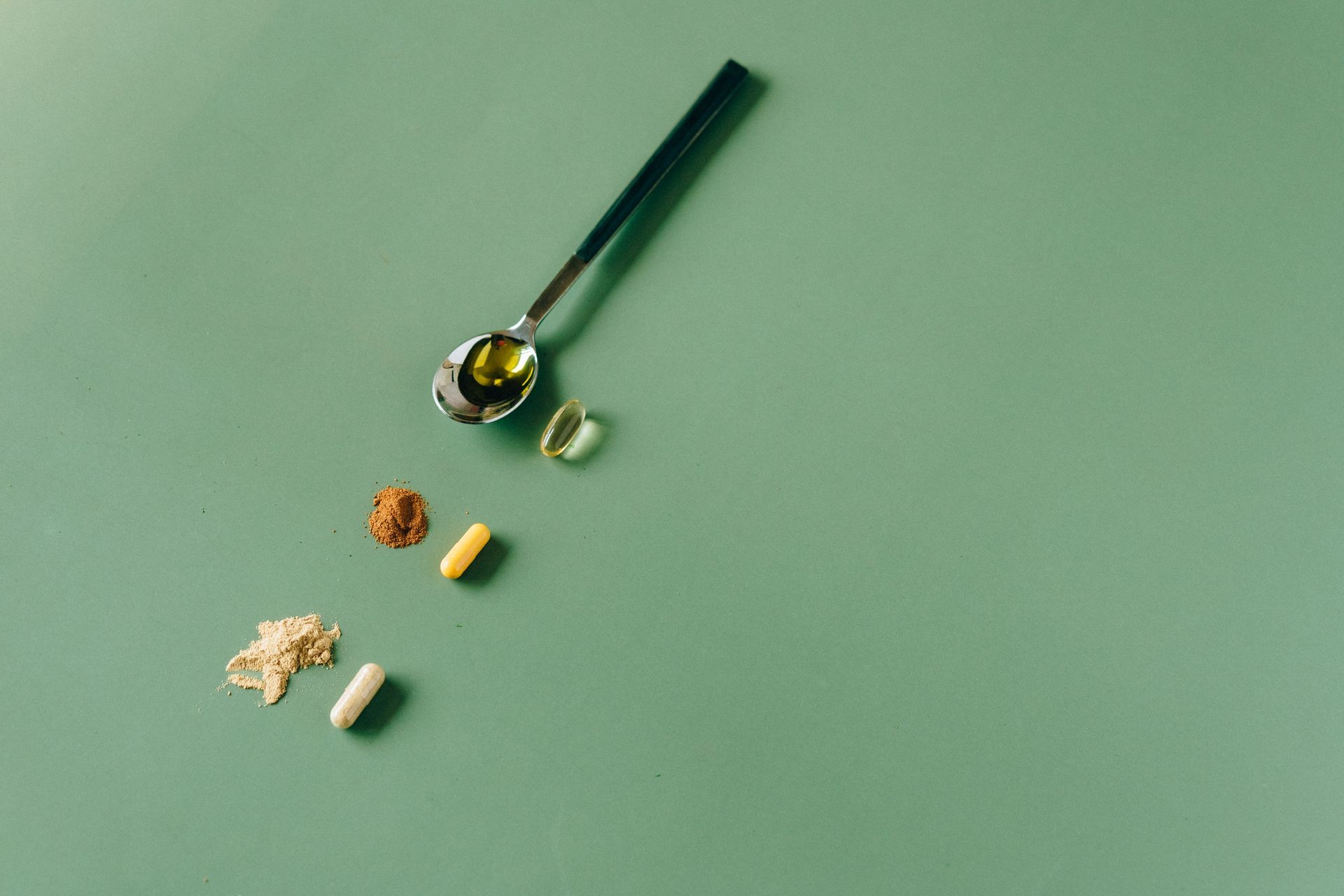Is sugar really that bad?
Sugar has become the definition of poor health and is blamed for everything from obesity to mental decline. Is it fair to so categorically blame all ills on sugar? At the end, many our our cells do need glucose and sugar is the most readily available source of energy. There is a lot of confusion about sugar, with some people comparing it to drugs (sigh...). So, let's look at the data objectively!
What is sugar?
This is where you start seeing the difference between people who took basic science classes and those who did not. Sugar is a chemical, so the understanding of basic chemistry is helpful when speaking about sugars. I'll try to keep this brief: all sugar consists of carbon (C), oxygen (O), and hydrogen (H) atoms. So, all sugars are classified as carbohydrates (now you know why some people use the abbreviation CHO).
Sugars can further be divided into three subgroups, depending on how the molecules are arranged:
- monosaccharides (such as glucose or fructose)
- disaccharides (examples include sucrose aka. table sugar, or lactose)
- polysaccharides (like starches or fibers)
When we speak about dietary sugars, it is important to distinguish between added sugars and total sugars, as even dairy products may seem "high" in sugar (remember: lactose is a sugar) when we only look at the total sugar number.
What happens when we eat sugar
This could be a whole blog post (or nutritional biochemistry lecture) but I'll just keep it basic here. When we eat any carbohydrate it is broken down to its simplest form (glucose) and then used for energy. After we eat a meal with carbohydrates, glucose in the blood raises, which stimulates the pancreas to release insulin. Insulin allows glucose to be transported into cells, where it is used as needed.
If there is excess glucose (energy), it can be stored as glycogen in the muscles or liver. If there is excess energy over a long period of time, and all the places in the body that can sore additional glucose are full, excess energy can also be stored as fat. When we start storing excess energy as fat, we are usually in trouble.
Is sugar to blame for increasing rates of obesity?
This narrative is often seen in the media. However, studies looking at a direct link between sugar and body weight weren't able to support this claim. While sugar is a nutrient that is easy to over-consume because it is dense it energy and has low satiety, when it is replaced with other foods isocalorically (meaning the same amount of calories), no weight changes are observed. Therefore, the reason why people who eat more sugar tend to have a higher body weight is simply due to overconsumption of energy, not because they eat sugar.
This may be hard to grasp because one is logically related to the other. But to explain it in simple terms: if you consumed all your calories from sugar, without exceeding your calorie needs, you would not gain weight. You would likely have many deficiencies but the sugar itself does not make people "fat" if it isn't fueling over-consumption of overall energy. This means that even if you exceed the recommended 10% of daily energy from sugar BUT you did not exceed calories, you would not gain weight. Keep in mind though that many high-sugar foods lack other nutrients, so the public health recommendation is to limit foods that are less nutrient dense and consume more foods that also deliver other essential nutrients and fiber.
Does sugar cause diabetes?
If I had a dollar for every time I heard someone say "it's so sweet, it will give me diabetes", I would be very rich. This belief that seems to thrive in our society is simply wrong. There is no evidence that supports the claim that excess consumption of sucrose (table sugar) can be linked to the development of type 2 diabetes. According to the recent review of evidence, isocalorically replacing sucrose with other carbohydrates had no significant effect on hemoglobin A1C (which is an important marker of blood sugar control) levels in patients with diabetes.
The main risk factor for type 2 diabetes is excess body fat. That's because when too much fat is stored in adipose (fat) tissues, their capacity to store excess energy may decrease. When this happens, free fatty acids are released into the blood, which promotes insulin resistance. Over a long period of time, insulin resistance can impair insulin secretion in the pancreas, which is when type 2 diabetes symptoms may occur. Therefore, any type of excess fat will increase risk of diabetes, not which foods specifically were consumed in excess.
What about high corn fructose syrup?
Many people blame the "obesity epidemic" on one product: high corn fructose syrup! But once again, there are limitations to this simplified claim. Rigorous reviews have found that the idea of fructose-containing sugar being independently linked to disease is supported only by low-quality studies. Most of them being animal models, where animals were overfed or short-term human interventions with extremely high doses of fructose. Systematic reviews and meta-analyses of controlled trials (the highest level of scientific evidence) could not confirm a causal link between fructose and weight gain or disease. They also failed to confirm that these sugars behave different in the body than other forms of carbohydrates. Once again, the authors emphasized that fructose-containing products can only lead to weight gain, and the health risks that come with excess body weight, when consumed in excess of calorie needs.
What about soda and sugar sweetened beverages (SSB)?
SSBs are another demonized product, with people making claims those are responsible for rising rates of obesity and cardiometabolic disease. But as the authors of one review state once more: "SSBs only have an adverse effect on glycemic control when adding excess energy to the diet." meaning that SSB are a problem but not due to the sugar in them but due to the fact that they are very easy to over-consume. So, yes soda is problematic - not because it contains sugar - but because it makes it very easy to drastically exceed calorie needs without really noticing.
Not all sugar is the same?
This is a huge lie and a truth at the same time. How so? Well, the claim that "natural" sugar is better is a huge lie. It doesn't matter if your sugar is white or brown, comes from a bee, maple tree, or agave plant. It's all sugar. All of those taste different and have different baking properties, so here it will make a difference. However, it does not make a difference for human health.
Now where this is true, is in the sense of fiber content and what you consume your sugar with. Take SSB for example: they are believed to have such a strong correlation with excess body weight and disease because they are very easy to over-consume and they do not increase satiety (meaning you do not feel full after a coke). But when we eat sugar as part of a healthy meal, such as a sprinkle over our oatmeal, it will be absorbed slower and result in a less abrupt blood glucose reaction.
The blood glucose response to different sugars depends on many factors, including fat content of the food, the amount of fiber or the grade of processing of carbohydrates. We have limited data that would compare the effects of solid sugars in foods and liquid sugars on health outcomes. What is more, controlled feeding trials are hard to do, so the best data we have about long-term effects of sugar intake is simply unreliable. However, from a biological standpoint, the assumption that it is the sugar - and not excess energy intake - is simply wrong.
Can I eat as much sugar as I want?
I know so many of you will be angry because I said sugar isn't the devil. But hear me out: I am not saying to eat it all the time. All I'm saying is that we need to relax. We can't blame everything on sugar and deprive ourselves of everything that tastes delicious, as long as we know how to enjoy sugar mindfully and how to fit it into our daily calorie goals. It simply does not cause many of the disease that you may think.
Excess sugar consumption is a marker of an overall unhealthy diet, therefore most of the studies linking sugar to disease make premature causal claims when it is simply a correlation. People who have a less healthy lifestyle have more disease and they also happen to eat more sugar. But sugar is not the cause for said disease.
How much sugar should I eat?
While many argue that current guidelines aren't necessarily based on the best evidence but much rather on publishing bias, nobody is saying to eat unlimited amounts of sugar. The Dietary Guidelines for Americans recommend limiting calories from added sugars to max 10% per day. It is good practice to limit added sugars as we know they may quickly lead to excess calorie intake. However, we need to change the narrative around sugar and keep in mind that for many people sugar is still essential to meet energy goals.
Many families still do not have access to nutritious meals. If a sugary cereal is the only way to feed your family high-fiber foods, it should not be demonized. People who have certain diseases, such as cancer, have extremely high energy needs. Those people may need more sugar to decrease the chance of developing cachexia (wasting of the body due to severe illness). Maybe you are an endurance athlete and you burn a very high amount of energy each day, with higher sugar intake being the only way not to be in a calorie deficit. You never know what people are going through and why they may need more energy dense foods. All foods have their place and time. We need to learn to focus on a whole-diet approach instead of getting hung up on single nutrients because just as sugar, fat is also easy to over-consume but parents aren't chastised for giving butter to their kids (and they shouldn't be).
Bottom line
I can't say it any better, so I will cite the authors of one paper: "sugar content should not be the sole determinant of a healthy diet. There are many other factors in the diet—some providing excess calories while others provide beneficial nutrients. Rather than just focusing on one energy source, we should consider the whole diet for health benefits."
Blaming everything on sugar is easy. We have been on a pursuit of finding the one food to blame for all ills for a while and so far, we've been unsuccessful. It would be nice to identify one food that we can cut out and then eat everything else without any limits, but that's not how our bodies work.
The hard truth is that no food is inherently good or bad and we need to know which foods are appropriate when. We are responsible for learning healthy eating habits without trying to find loopholes. It's disappointing but fortunately there are dietitians (like me), who can help you build and maintain good eating habits. Demonizing single nutrients is simply bad health communication and leaves people anxious. Have the cookie and enjoy it guilt-free. It literally does not ruin your health!
Sources
- The role of dietary sugars, overweight, and obesity in type 2 diabetes mellitus: a narrative review
- Role of diet in type 2 diabetes incidence: umbrella review of meta-analyses of prospective observational studies
- Dietary sugars and body weight: systematic review and meta-analyses of randomised controlled trials and cohort studies
- Food sources of fructose-containing sugars and glycaemic control: systematic review and meta-analysis of controlled intervention studies
- Controversies about sugars: results from systematic reviews and meta-analyses on obesity, cardiometabolic disease and diabetes
- Current WHO recommendation to reduce free sugar intake from all sources to below 10% of daily energy intake for supporting overall health is not well supported by available evidence
Join my newsletter to get notified about new posts
Contact Us
We will get back to you as soon as possible
Please try again later
Join my newsletter to get notified about new posts
Contact Us
We will get back to you as soon as possible
Please try again later



